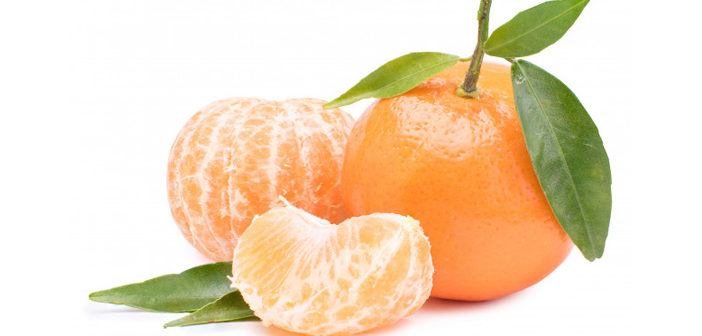Vitamin C is an antioxidant present in many fruits and vegetables. Also known as L-ascorbic acid, vitamin C has a wide variety of uses in the body. It supports normal growth and development and helps the body repair damaged tissue. Vitamin C also assists in the production of collagen, a protein that’s necessary for healthy skin, cartilage, tendons, ligaments, and blood vessels.
To say that vitamin C is beneficial would be an understatement. It influences iron absorption and helps fight cell-damaging free radicals. A 16-year study found that regular vitamin C supplementation promoted heart health. Additionally, people who consume foods rich in vitamin C or other antioxidants may lower their risk of high blood pressure.
High Doses of Vitamin C
In the 1970s, chemist and Nobel Peace laureate, Linus Pauling, proposed that high doses of vitamin C could help prevent the common cold. Many people swear by Pauling’s claim that vitamin C can boost the immune system naturally, but the research is still inconclusive.
A number of studies have examined whether high-dose vitamin C can provide extraordinary therapeutic results. Results thus far are inconclusive. However, animal studies have found that vitamin C may make traditional therapies more effective.
Natural Dietary Sources of Vitamin C
Many types of food are fortified with vitamins and vitamin C is usually in the mix. However, like all vitamins, it’s best to get your daily intake from organic, natural sources and the best, natural sources of vitamin C are fruits and vegetables. Below are some of the best foods for vitamin C.
Sources of Vitamin C
| Food and Serving Size | Vitamin C (mg/serving) |
| Red or Yellow Bell Pepper, Raw, 1/2 cup | 95 |
| Orange Juice, 3/4 cup | 93 |
| Orange, 1 medium | 70 |
| Grapefruit Juice, 3/4 cup | 70 |
| Kiwifruit, 1 medium | 64 |
| Green Bell Pepper, raw, 1/2 cup | 60 |
| Broccoli, cooked, 1/2 cup | 51 |
| Strawberries, fresh, sliced 1/2 cup | 49 |
| Brussels sprouts, cooked, ½ cup | 48 |
| Grapefruit, ½ medium | 39 |
| Broccoli, raw, ½ cup | 39 |
| Tomato juice, ¾ cup | 33 |
| Cantaloupe, ½ cup | 29 |
| Cabbage, cooked, ½ cup | 28 |
| Cauliflower, raw, ½ cup | 26 |
| 1 Lemon Yield, 48g | 18.6 |
| Potato, baked, 1 medium | 17 |
| Tomato, raw, 1 Medium | 17 |
| Spinach, cooked, 1/2 cup | 9 |
| Green peas, frozen, cooked, 1/2 cup | 8 |
Daily Intake of Vitamin C
The amount of vitamin C that a person needs may vary with factors like age or whether a person is smoking, pregnant, or even breastfeeding. These are the guidelines provided by the U.S. Office of Dietary Supplements:
Recommended Daily Allowances of Vitamin C
| Age | Female | Male | Pregnant female | Breastfeeding female |
| 0-6 months | 40 mg | 40 mg | N/A | N/A |
| 7-12 months | 50 mg | 50 mg | N/A | N/A |
| 1-3 years | 15 mg | 15 mg | N/A | N/A |
| 4-8 years | 25 mg | 25 mg | N/A | N/A |
| 9-13 years | 45 mg | 45 mg | N/A | N/A |
| 14-18 years | 65 mg | 75 mg | 80 mg | 115 mg |
| 19+ years | 75 mg | 90 mg | 85 mg | 120 mg |
Dangers of Vitamin C Deficiency
A lot of people might think “scurvy” is just pirate lingo, but it’s actually a disease caused by a lack of vitamin C. Symptoms of scurvy include fatigue, gum disease, anemia, scaly skin, and easy bruising. Vitamin C deficiency is uncommon in the United States these days but some people remain at risk.
People who get too little variety in their food may not receive adequate nutrition. Normally, when we hear “malnourished” many of us think “starving”, but what it’s more likely to mean is that a person is deficient in specific nutrients and it’s affecting their health. Those who rely on a carnivorous diet might miss their daily quota for vitamin C as meat and dairy don’t contain much of this critical nutrient. Infants fed evaporated or boiled cow’s milk may not get enough vitamin C, especially since cow’s milk is low in vitamin C to begin with. Breast milk and infant formula are both better sources of vitamin C.
Some medical conditions can cause vitamin C deficiency. Digestive tract injuries or inefficiencies, genetic diseases, and other issues can negatively affect not just vitamin C absorption, but nutrient absorption as a whole. Kidney disease and some types of cancer can also cause vitamin C deficiency.
Smoking cigarettes is a bad idea for many reasons. One of the effects of the tissue damage it causes is the body using up vitamin C at a faster rate than normal. As a result, smokers and people exposed to second-hand smoke may need an extra 35 mg of vitamin C a day.
Vitamin C Supplementation
Usually, if you follow a balanced diet with a foundation of organic fruits and vegetables, you’ll get all the vitamin C you need. If you don’t, vitamin C supplementation might be something to consider and discuss with your healthcare provider.
Be aware of the difference between synthetic and natural vitamins. Synthetic supplements are manufactured with unnatural ingredients and chemicals. They are made to mimic natural vitamins but not everyone is convinced of their efficacy. Conversely, natural supplements are made using ingredients drawn straight from their natural sources.
Vitamin C supplements are usually available as ascorbic acid, sodium ascorbate, or calcium ascorbate. Synthetic and natural ascorbic acid have similar properties, but I always recommend a natural, plant-based source.
If your diet isn’t providing you with enough vitamin C, you should consider that it’s not providing you with all the other nutrients your body requires, either. In such a case, you may want to skip the vitamin C supplement and look for a solid multivitamin. I recommend IntraMAX® and believe, without a doubt, that it’s the best multivitamin available anywhere. It’s an organic, liquid formula loaded with all the nutrients you need, as well as powerful antioxidant and immune system stimulators. It’s as complete as it gets.
Source by: Dr. Edward Group DC, NP, DACBN, DCBCN, DABFM
globalhealingcenter




